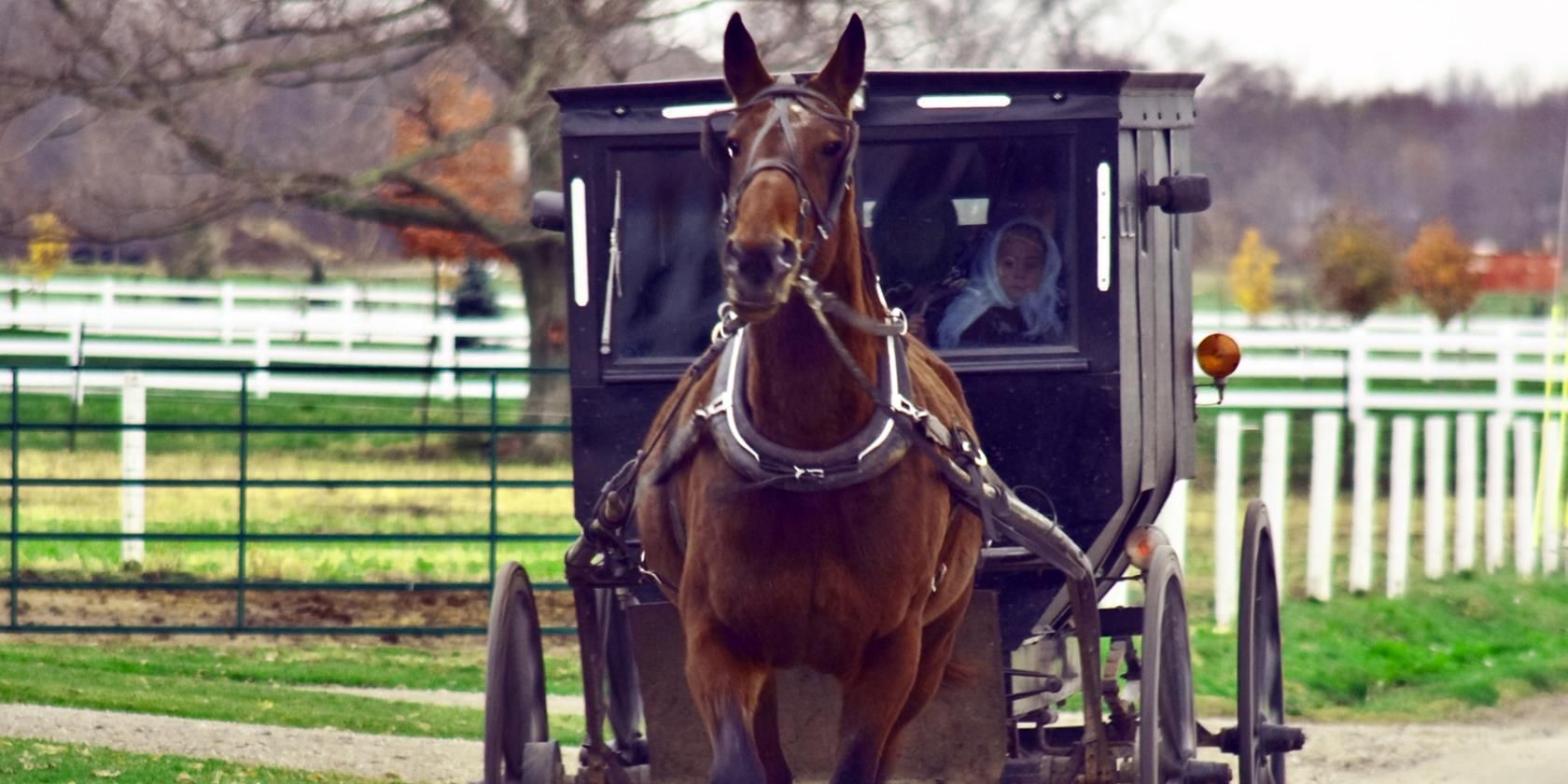How would a lack of electricity affect your life? There is a group of traditionalist people, who reject many of modern society's technology, including electricity from the public grid: the Amish. That, however, does not prevent them from enjoying some of the comforts of technology.
Why Do Amish People Reject Electricity?
Interestingly, Amish don't reject electricity per se; the subject is more complicated than that.
The power source itself is not the issue. Running household items with electricity, like an iron or a lamp, is perfectly agreeable with Amish beliefs. Technology that adds value to the community, is a welcome tool, although each community individually decides what exactly is considered valuable. Being connected to the power grid, however, would inevitably establish a tight connection to the non-Amish world. This in turn, fear the Amish, could influence their culture in undesired ways. Moreover, Amish leaders recognized early on that electricity can potentially power many things, and thus its use was banned in 1920.
Electricity does not discriminate, and eliminating public power from the home prevents the temptation of using television, radio, and the Internet in the home. Additionally, too much reliance on labor-saving devices, Amish feel, may deprive children of character-building opportunities to work.
Source: Amish America
How Do They Generate Power?
This is where it gets interesting. Since they refuse to buy electricity from the public grid, but still depend on energy for many of their everyday operations, they were forced to developed many workarounds. To power appliances, Amish use batteries, propane gas, compressed air pressure, various generators, hydraulic pumps, and even solar panels.
While not all of their power sources, like propane gas or diesel, are sustainable, they are rather creative, independent, and used to living off the grid.
How Do They Use Electricity?
Amish are probably not as backward as you think. Most use electric lights, often LEDs, instead of candles, gas or oil lamps, they have gas-powered fridges, washers, solar-powered electric fences, they use electric tools, and back in 2008, someone even developed a Classic Word Processor, aka an Amish computer.
This dumped down computer was "made specifically for the plain people by the plain people." It came without connectivity ports, sound, pictures, games, or other features beyond the ability to process documents and be useful for business.
For the Amish, the key is to stay off any grid that connects them too tightly to the modern world. As long as our worldly luxuries don't violate their independence and their Christian values or threaten their community, anything is game. That naturally excludes the Internet and home phones.
The Amish are suspicious that beneath the glitter of modernity lurks a divisive force that in time might fragment and obliterate their close-knit community.
~Donald Kraybill, The Riddle of Amish Culture
What Can We Learn From The Amish?
The Amish's first and foremost concern is to preserve their Christian values and protect their cherished community. They are deeply aware of how quickly a community can deteriorate, if individuals temporarily forgo common values to strive for personal goals or satisfaction.
If you thought the Amish are a dying community, think again. They aren't many, but their population has been growing from 165,000 in the year 2000, to approximately 249,000 in 2012. That's a 50% increase in 12 years. Meanwhile, overall birth rates in many Western countries are stagnating or even dropping. It seems like the Amish are thriving.
You can conquer this with deprecatory comments and comparisons all you want; there is something to be learned here. The Amish know what they value and they have a clear vision for their future; their lives revolve around their community and nothing else. Based on these premises, they carefully evaluate every new technology, trying to understand what the consequences of its use may be and whether it can serve them in a good way.
When they do find a tool they have a need for, they amend the technology to remove all elements that don't serve them, such as with the word processor. They are never rushed to madly follow a trend and thus their culture is developing slow enough to maintain its key values and characteristics; its identity. They rule and hack technology, so gadgets won't run their life.
The lifestyle of the Amish might be backward and old-fashioned; most of their values, however, are universal and timeless. Western societies share many of these values, but what is our vision for our future? Consumption to maintain endless growth? And where are we ending up with this strategy compared to the Amish?
I'm not proposing to live like the Amish. But I do think that this extremely simple, non-conforming, and self-sufficient lifestyle is a blueprint for how an intentional way of living, a way of life that is based on values and vision, paired with careful evaluation of new developments, can help an individual, a community, and a society thrive sustainably.
What is your vision for our common future?
Image credits: Amish Buggy by Anita Ritenour via Flickr, Charging Station by Nottingham Hackspace via Flickr, Classic Word Procesor via Amish Internet Blog



